News
US organics hit new highs
23 May 2016The U.S. organic industry posted new records in 2015, with total organic product sales hitting a new benchmark of $43.3 billion, up 11% from the previous year’s record level and far outstripping the overall food market’s growth rate of 3%.

The U.S. organic industry posted new records in 2015, with total organic product sales hitting a new benchmark of $43.3 billion, up 11% from the previous year’s record level and far outstripping the overall food market’s growth rate of 3%, according to the Organic Trade Association (OTA)’s 2016 Organic Industry Survey.
The industry saw its largest annual dollar gain ever in 2015, adding $4.2 billion in sales, up from the $3.9 billion in new sales recorded in 2014. Of the $43.3 billion in total organic sales, $39.7 billion were organic food sales, up 11% from the previous year, and non-food organic products accounted for $3.6 billion, up 13%. Nearly 5% of all the food sold in the U.S. in 2015 was organic.2015 was a year of significant growth for the industry despite the continued struggle to meet the seemingly unquenchable consumer demand for organic, the OTA said. Supply issues persisted to dominate the industry, as organic production in the U.S. lagged behind consumption. In response, the organic industry came together in creative and proactive ways to address the supply challenge, to improve and develop infrastructure, and to advocate for policy to advance the sector. “The industry joined in collaborative ways to invest in infrastructure and education, and individual companies invested in their own supply chains to ensure a dependable stream of organic products for the consumer. Despite all the challenges, the organic industry saw its largest dollar growth ever. Organic will continue to be the most meaningful farm-to-fork—and fiber—system,” said OTA’s CEO and Executive Director Laura Batcha.Organic produce retained its longstanding spot as the largest of all the organic categories with sales of $14.4 billion, up 10.6%. Produce has always been and continues to be a gateway to organic, the OTA notes. It’s easy for shoppers to make the connection between agricultural practices used in the field and the fresh fruit or vegetables they bite into. Almost 13% of the produce sold in the USA is now organic.The demand for fresh organic was most evident in the continued growth of “fresh juices and drinks,” which saw growth of 33.5% in 2015, making it the fastest-growing of all the organic subcategories. The fastest-growing of the eight major organic categories was condiments, which crossed the $1 billion mark in sales for the first time in 2015, on 18.5% growth. Dairy, the second biggest organic food category, accounted for $6.0 billion in sales, an increase of over 10%. Dairy accounts for 15% of total organic food sales.“Farm fresh foods—produce and dairy—are driving the market. Together, they account for more than half of total organic food sales,” Batcha said. “The organic market looks like a healthy plate.” That said, Americans still like to snack, and more and more of us are snacking organically. Also seeing a big growth in sales in 2014 – and more than triple the level of just 10 years ago -- was the organic snack food category, with sales of $2.3 billion, up almost 14% from 2014.According to the OTA, consumers are not just eating organic, they are incorporating more into their total lifestyle. Organic non-food products continue to gain in popularity. Even though non-food products account for just 8.2% of overall organic sales, the almost 13% growth rate in the sales of organic non-food products outpaces the growth rate in organic food, as well as the overall growth of comparable products, primarily conventional, which inched up by a mere 2.8%. Growth in the non-food category was led by organic fibre, followed closely by organic supplements.Increased consumer demand for organic products in 2015 could also be attributed to greater access to these products from mainstream retailers. As supermarkets, big box stores, membership warehouse clubs, and other outlets continued to up their organic offerings, organic options have become more available than ever before, the OTA points out. The growth in the organic market, however, did not come without continued challenges to the supply chain, the OTA said. Dairy and grains were two areas where growth could have been even more robust in 2015 if greater supply had been available. There is an industry-wide understanding of the need to build a secure supply chain that can support demand. This goes hand-in-hand with securing more organic acreage, developing programs to help farmers transition to organic, and encouraging new farmers to farm organically.Some companies are dealing with these supply issues individually, the organisation notes. Meanwhile, others are working together to address this concern. One example is the U.S. Organic Grain Collaborative, whose members include Annie’s, Stonyfield, Organic Valley, Clif Bar, Nature’s Path and Grain Millers, among others. On the fibre side, 2015 saw the creation of OTA’s Organic Fiber Council, which includes members from across the organic fibre industry, and whose focus is to increase the awareness of the benefits of organic fibres and to encourage more organic cotton acreage in the U.S.Despite strategic challenges, OTA’s Batcha is confident about the industry’s future prospects. “Organic is a bright spot in agriculture and the economy of America,” she said. “Our success will continue to be built on a solid foundation of stakeholder engagement, transparency and meaningful organic standards that consumers trust in.”Related news
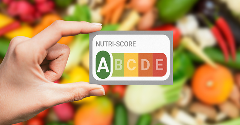
Danone removes NutriScore from products
20 Sep 2024
Following an algorithm update that gives some of its sweetened drinks a worse score, Danone has removed the front-of-pack label, NutriScore, from all of its products – putting profit before public health, say campaigners.
Read more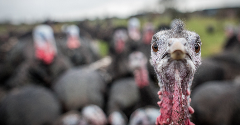
Diestel is first turkey producer to snag Regenifed certification
17 Sep 2024
In the US, Diestel Family Ranch, a family-owned turkey farming venture, has become the first producer to gain Regenified certification for its whole turkey and processed turkey product ranges.
Read more
Indonesia introduces new halal certification system
9 Sep 2024
International food and beverage companies importing halal products into Indonesia need to adhere to new rules after the country introduced a new halal certification system.
Read more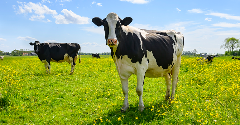
Tesco trials methane mitigation supplement for dairy cattle
5 Sep 2024
Tesco is trialing a methane-reducing feed supplement for one of its key UK dairy farms, sustainable UK milk producer Grosvenor Farms.
Read more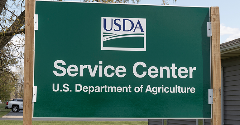
USDA launches new nutrition hub network
22 Aug 2024
The United States Department of Agriculture (USDA) will invest $4.5 million into providing nutritional advice and guidance across the US.
Read more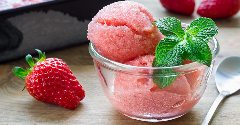
Better Juice expands its range to sorbets
16 Aug 2024
Food tech startup Better Juice has developed a technology to reduce the sugar content in fruit sorbets. The process retains the natural vitamins, minerals, and flavours of fruit, while offering manufacturers an easy-to-implement and scalable solution t...
Read more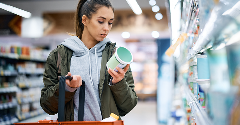
Sweden updates front-of-pack Keyhole labelling rules
11 Jul 2024
The Swedish Food Agency has announced updates to the voluntary Keyhole logo, used in four Nordic countries, following recommendations to improve nutrition labelling.
Read more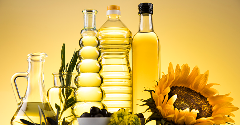
The seed oil backlash: How food and beverage brands are adapting
9 Jul 2024
There is a small but growing anti-seed oil movement, with some consumers perceiving seed oils – such as rapeseed oil and sunflower oil – as harmful for human health, despite the advice of nutritionists and assurances from dietary authorities.
Read more
Tesco launches laser-etched avocados to reduce plastic packaging
3 Jul 2024
UK supermarket chain Tesco is trialing a new laser-etched avocado range as part of its measures to cut down on plastic packaging and enhance its environmental profile.
Read more
Researchers tap into sticky rice as a potential source of clean label starch
8 May 2024
Pigmented waxy rice may prove to be a good source of clean label starch, according to researchers at the University of Arkansas.
Read more